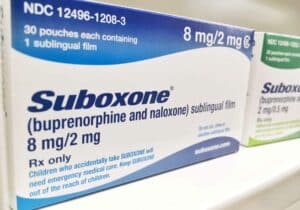If you’ve attempted to quit opioids or heroin and found yourself struggling with withdrawal symptoms, you’re not alone. These symptoms can be daunting, but understanding their onset and duration can be beneficial. Seeking medically-supervised detoxification is crucial in managing these symptoms effectively.
The initial withdrawal symptoms from discontinuing heroin can be acute, emerging within a few days and potentially lasting up to a week. Common symptoms include excessive sweating, dilated pupils, and muscle spasms. However, longer-lasting symptoms like intense cravings, obsessive thoughts about using, or depression can persist well beyond the acute phase.
Attempting detox at home can often be overwhelming due to the intensity of short-term symptoms, increasing the risk of relapsing back into heroin use. Opting for a medically-supervised detox offers a safer alternative, providing a controlled environment where medical professionals can oversee the heroin withdrawal process. This approach not only helps in managing the immediate withdrawal symptoms but also addresses related health concerns such as high blood pressure, nutritional deficiencies, and cardiovascular issues. Embracing this form of detox can significantly enhance the safety and effectiveness of the withdrawal process, paving the way for a smoother transition to recovery.
Heroin Withdrawal
Physical dependency on heroin, a common consequence of prolonged opioid use, leads to intense withdrawal symptoms upon cessation – a notable challenge in overcoming heroin addiction.
During detoxification, as heroin and its harmful metabolites exit your system, your body undergoes significant stress trying to adapt to the absence of the drug. This process triggers a range of withdrawal symptoms.
For many long-term heroin users, the dread of facing these withdrawal symptoms often becomes a major hurdle in seeking treatment. However, gaining knowledge about what heroin withdrawal entails can be empowering. While the process is undoubtedly uncomfortable, the symptoms are manageable and typically short-lived.
The intensity and nature of heroin withdrawal symptoms vary from one individual to another, influenced by several factors, including:
- The length of time heroin has been used
- The amount of heroin consumed
- Method of heroin administration (injecting, snorting, etc.)
- Any existing medical conditions
- The presence of co-occurring mental health disorders
- History of previous opioid withdrawals
The symptoms experienced during heroin detox are essentially the opposite of the euphoric effects heroin typically induces. Heroin generally depresses certain functions of the central nervous system while enhancing feelings of pleasure. In its absence, individuals may experience symptoms like:
- Accelerated heart rate
- Depressive mood states
- Generalized anxiety
Understanding these withdrawal symptoms is crucial for anyone contemplating heroin detox. It demystifies the process and underscores the importance of medically supervised detoxification for a safer and more comfortable withdrawal experience.
What are the Symptoms of Heroin Withdrawal?
Heroin withdrawal brings a range of symptoms, categorized into two distinct phases: immediate, short-term effects followed by more prolonged, long-term symptoms.
Short-Term Symptoms of Heroin Withdrawal
These symptoms typically emerge soon after the last heroin use and are relatively short-lived:
- Rapid heartbeat
- Increased breathing rate
- Elevated blood pressure
- Higher body temperature
- Sleep disturbances, including insomnia
- Pupil dilation
- Heightened reflexes
- Sweating
- Appearance of goosebumps
- Watery discharge from eyes and nose
- Muscle cramps, spasms, and generalized pain
- Nausea, potentially leading to vomiting
- Diarrhea
- Intense cravings for heroin
Long-Term Symptoms of Heroin Withdrawal
As the withdrawal process continues, longer-lasting symptoms can set in and may persist for an extended period:
- Persistent cravings for heroin
- Anxiety and/or depressive states
- Ongoing sleep issues
- Persistent fatigue
- Emotional numbness or dulled feelings
- Loss of interest in previously enjoyed activities
- Frequent irritability
- Memory challenges
- Difficulty concentrating, impacting work and decision-making
Navigating heroin withdrawal can be challenging due to the range and intensity of these symptoms. The short-term effects, while intense, are often manageable with appropriate medical supervision. Long-term symptoms require ongoing support, often involving both medical and psychological interventions, to ensure successful recovery and reduce the risk of relapse. Understanding these symptoms is crucial for anyone preparing to undergo heroin detoxification.
How Long Does Heroin Withdrawal Last?
The initial phase of heroin withdrawal usually spans about a week. However, psychological effects such as depression and intense cravings can linger for several weeks post-withdrawal. In the initial days of withdrawal, the body and brain undergo a detoxification process to rid themselves of the drug. Symptoms like sweating, vomiting, and diarrhea occur as the body expels the accumulated toxins from prolonged heroin use.
As the brain begins to regain normal function, the body needs additional time to heal from the impacts of heroin dependence and abuse. During this recovery phase, it’s crucial for individuals to engage with healthcare professionals and addiction counselors. This collaborative effort addresses any residual mental health and medical issues following the acute withdrawal phase. Implementing a dual diagnosis treatment plan is particularly effective in managing serious mental health symptoms, allowing individuals to dedicate their focus to sustained, long-term recovery.
Understanding the length and stages of heroin withdrawal is key to preparing for the recovery journey. It helps in setting realistic expectations and underscores the importance of medical support and counseling in successfully overcoming heroin addiction.
Heroin Withdrawal Timeline
The process of withdrawing from heroin follows a specific timeline, characterized by various symptoms that evolve and change in intensity over time.
6 to 12 Hours
Symptoms can start appearing within the first 6 to 12 hours after your last heroin use, often overnight. These initial signs may be mistaken for a common cold or flu due to their similarity in presentation.
Day 1 to Day 3
Within one to three days, particularly if you last used heroin on a Friday night, you’ll likely experience an intensification of withdrawal symptoms over the weekend and into the following week. It’s during these first few days, the peak of withdrawal, that cravings are at their strongest. This is a critical period where the temptation to reuse heroin is high to alleviate discomfort.
One Week
Approximately a week into the withdrawal, there’s typically a noticeable reduction in the severity of physical symptoms. However, you may still grapple with psychological symptoms, including strong cravings for heroin.
Two Weeks and Beyond
After two weeks, heroin will have been naturally processed out of your body. Despite this, lingering cravings and psychological symptoms such as depression or anxiety might persist for weeks or even months.
Post-Acute Withdrawal Syndrome (PAWS)
In some cases, individuals may experience PAWS, where withdrawal symptoms continue for an extended period, potentially lasting weeks or months. This prolonged withdrawal phase underscores the importance of ongoing support and treatment in the recovery journey.
Each phase of heroin withdrawal presents unique challenges, and understanding this timeline is vital for those preparing for or currently navigating the recovery process. It highlights the importance of continuous support and medical intervention during this time.
What Factors Impact How Long Heroin Withdrawal Lasts?
The duration and intensity of heroin withdrawal can vary significantly from person to person. This variability is influenced by a range of factors, each contributing to how the body and mind react during the withdrawal process. Understanding these factors is crucial, especially for those considering seeking help for heroin addiction. Here are some key factors that can impact the duration and severity of heroin withdrawal:
- Tolerance Levels
- Addiction Severity
- Duration of Heroin Use
- History of Opioid Dependence
- Polysubstance Use
- Overall Health Condition
Given these varied factors, it’s important to approach heroin withdrawal with professional guidance. A reputable treatment center, such as Vertava Health Mississippi, can offer tailored support and treatment, taking into account your specific circumstances and needs, to help you navigate through the challenges of withdrawal towards a path of recovery.
What are the Side Effects of Heroin Withdrawal?
Heroin withdrawal often leads to a range of difficult side effects, which can be intense and hard to manage. Individuals undergoing detox from heroin typically experience a variety of symptoms that can significantly impact their physical and mental well-being.
These symptoms include:
- Intense Cravings
- Nausea
- Vomiting
- Diarrhea
- Sweating
- Anxiety
- Depression
- Muscle Pain
- Insomnia
These symptoms can vary in intensity and duration, depending on the individual’s level of dependency and overall health. The experience of withdrawal can be both physically and emotionally taxing, highlighting the need for comprehensive medical supervision and support during the detoxification process. It’s crucial to have access to effective treatment and care to navigate these challenges safely and more comfortably. Seeking professional help can greatly ease the journey through withdrawal and lay a stronger foundation for recovery.
How to Detox from Heroin
Successfully detoxing from heroin is a crucial step in the journey towards recovery, and it’s most effectively achieved in a medically supervised setting. Opting for a detox at a licensed medical detox center, or as the initial phase in a residential rehabilitation program, can significantly enhance the process.
The structured environment of a detox center, with the right combination of emotional support and clinical care, helps alleviate the discomfort and intense cravings often associated with heroin withdrawal. This supportive setting is designed to boost your chances of successfully embarking on a heroin-free life, reducing the likelihood of relapse.
At Iris Wellness Group’s outpatient detox facility in Chattanooga, TN, we specialize in providing this kind of comprehensive support. Our team is dedicated to helping you through each step of the detox process, ensuring that your path to recovery from heroin addiction is as smooth and effective as possible.
Heroin Withdrawal Treatment at Iris Wellness Group
Iris Wellness Group is a haven for those fighting heroin addiction in Chattanooga, TN. Our heroin addiction treatment center offer a nurturing environment conducive to recovery.
Our compassionate heroin outpatient program offers heroin outpatient detox in Chattanooga, TN, ensuring a safe and effective detox process. Once free from addictive substances, you can seamlessly transition into one of our specialized outpatient treatment programs at Iris Wellness Group, designed to address substance use disorders:
- Outpatient Detox: Combines the convenience of living at home with the effectiveness of regular treatment sessions, ideal for integrating recovery with your everyday life.
- Outpatient Rehab: This program is really flexible, designed to work around your daily schedule.
- Partial Hospitalization Program (PHP): It’s structured but you don’t have to stay overnight. It’s like getting intensive treatment during the day while you live at home.
- Intensive Outpatient Program (IOP): This one offers deeper, more focused care but still lets you keep up with your everyday responsibilities.
- Dual Diagnosis Treatment Program: This is specially for people who are dealing with both addiction and mental health issues at the same time.
Our heroin treatment programs incorporate a variety of interventions:
- Medication-Assisted Treatment (MAT): This uses medicines to help reduce withdrawal symptoms and the urge to use opioids.
- Psychotherapy: This is all about tackling the mental and emotional factors that play a part in addiction by using CBT or DBT.
- Group Therapy: Here, you’ll get support and learn with others who are going through similar experiences.
- Individual Therapy: You’ll get one-on-one support that’s tailored just for you.
- Family Therapy: This helps fix and strengthen your relationships with family, which is super important.
- Holistic Therapies: These focus on improving your overall health – body, mind, and spirit.
- Aftercare: We’ll keep supporting you even after your treatment is over.
Begin your path to recovery with Iris Wellness Group. Our experienced team is here to guide and support you. For more information or to start heroin addiction treatment, reach out to our admissions team at 423-460-9766.












